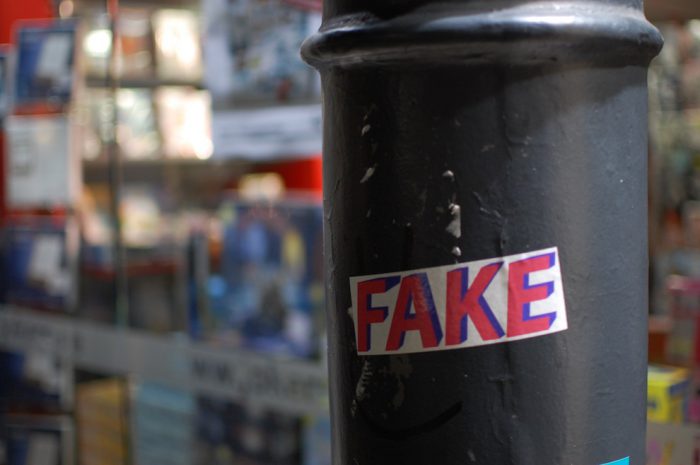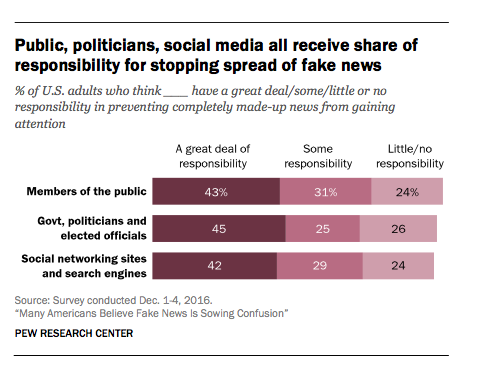
Depressingly, 23 percent of Americans have shared fake news at some point, and even more depressingly, 14 percent said they shared a story knowing it was false (16 percent said they shared a story they later realized was false).

Yet Pew also found that most Americans say they are “somewhat confident” (45 percent) or “very confident” (39 percent) in their ability to identify articles that are completely made up. This confidence is about even across political parties (results from a recent BuzzFeed survey suggest that “those who identify as Republican are more likely to view fake election news stories as very or somewhat accurate”).
Who should be responsible for stopping fake news from spreading? Most Americans think the public, the government and elected officials, and social media and search engines should all shoulder some of that responsibility. Forty-five percent say the government/politicians/elected officials have “a great deal of responsibility,” while 43 percent say the same for “members of the public” and 42 percent say social networking sites and search engines.
On the question of responsibility, demographic differences start to emerge:
Americans ages 50 and older are more likely to place a great deal of responsibility on the government (53%) than those ages 18 to 49 (38%). There are no demographic differences for how much responsibility the public or social networking sites and search engines owe.
There is also a partisan difference on how much responsibility the government has to prevent the spread of fake news. While about half of both Republicans (48%) and Democrats (49%) say the government has a great deal of responsibility, only about four-in-ten independents (38%) say so.
There are no partisan differences in terms of the responsibility assigned to the two other groups, however.
You can read the full report here. (Pew’s survey of 1,002 U.S. adults was conducted between Dec. 1 through Dec. 4. The now infamous “Pizzagate” incident, in which an real person with a gun decided to self-investigate a Washington D.C. pizzeria based on false stories that it was a cover for a child prostitution ring, occurred on the last day of the Pew study. “The responses of people contacted on this day do not differ significantly from the responses of people contacted before the incident,” Pew notes.)
Leave a comment
You must be logged in to post a comment.